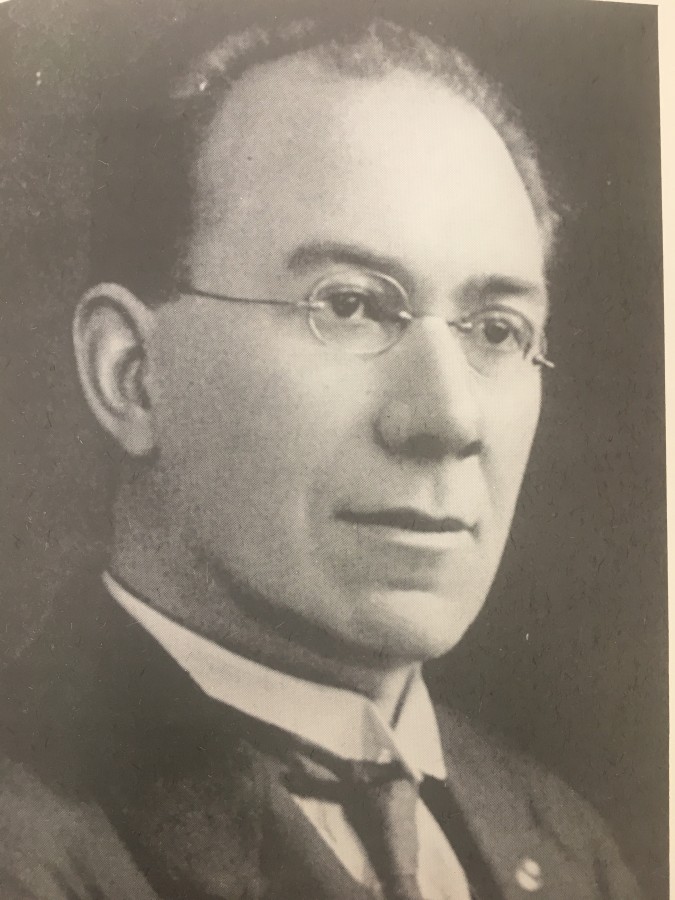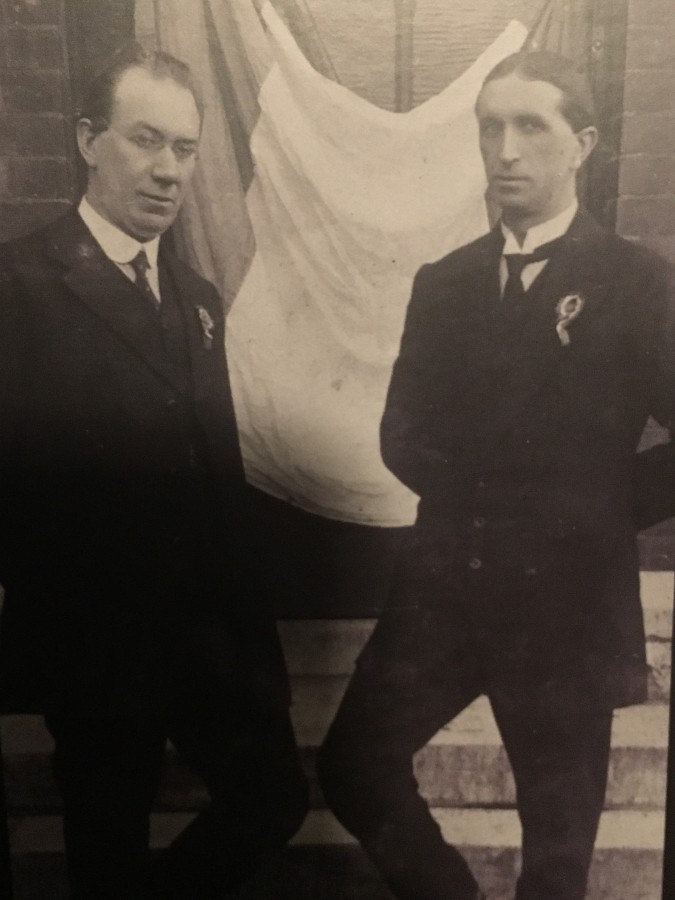Kieran’s Our City, Our Town Article,
Cork Independent, 22 February 2018
Stories from 1918: Liam De Róiste’s Campaign
This week, one hundred years ago, a public meeting was held on 24 February 1918 under the auspices of the Whitechurch Sinn Féin Club in the village Dispensary Hall. Vice-chairman of Sinn Féin in Cork and Gaelic scholar Liam de Róiste was the guest speaker.
Liam De Róiste (1882-1959) was born in Tracton, County Cork and was prominently identified with the Cork branch of the Gaelic League movement. He was a founder member of it in 1899 and his interaction with the League was strong over many years. He was also the founder of the Celtic Literary Society which brought together in Cork City a group of men destined to win later fame. These included such men as Cork’s martyred Lord Mayors, Terence MacSwiney and Tomás MacCurtain, brothers P S O’Hegarty and Seán O’Hegarty and Daniel Corkery, the playwright and novelist. Hand in hand with this activity was Liam’s love of the Irish language. He was in turn secretary and chairman of the Gaelic League in Cork, and a friend of such people as Dr Eoin MacNeill and Dr Douglas Hyde, the latter who became Ireland’s first President. In later years he was the founder and for many years secretary of Coláiste na Mumhan, an institution, which played such an outstanding part in the spread of the language. He was chairman of the first meeting of Sinn Féin in Cork at which attended Sir Roger Casement and Eoin MacNeill.
Liam De Róiste’s obituary in Irish newspaper in 1959 highlight that he was an original member of the Irish Volunteers and took part in the now historic march to Macroom on Easter Sunday 1916. Later, he helped to smuggle in rifles from London for distribution to the IRA. In late 1916 and throughout 1917 Liam De Róiste was important glue to keep the re-organisation of Sinn Féin going in Cork, especially with Terence McSwiney and Tomás MacCurtain being imprisoned for long periods of time during the years 1916-1918. Liam De Róiste kept the re-organisation of the party strong, being involved in organising rallies in Cork in late 1917 for Arthur Griffith, Countess Markievicz, and Eamon DeValera. He also wrote a diary, copies of which are digitised on the website of Cork City and County Archives. The diary entries are long in 1916 and early 1917 and veer to limited commentary in late 1917.
Liam De Róiste’s speech in Whitechurch on 24 February 1918 highlighted many of his interests and campaigns. In his opening remarks he noted that the object of the Sinn Féin movement was the sovereign independence of Ireland; “Sinn Féin claimed for Ireland as a right the same measure of liberty at least as the Western Powers of Europe claimed for Belgium. They claimed for Ireland as a right self-determination in the fullest and freest sense and to take advantage of the World War I quest for peace talks; “No physical force on earth, not all the militarism of all the Empires could ultimately beat the determined spirit of a nation. But as sensible men it behoved us to take full advantage of affairs abroad, of the international situation to press our claim for sovereign independence before the nations of the world”.
Continuing, Mr De Róiste dealt with Sinn Féin political campaign calling for retention of food at Irish ports. He warned his listeners against what he deemed “the lies and misrepresentations that had been spread by political enemies of Sinn Féin”. He made a strong appeal for the conservation of food and increase of tillage. He claimed that efforts were being made, particularly in Cork county, to create a bad feeling between farmers and farm labourers as a means of injuring the Sinn Féin movement. He himself as President of the Sinn Féin Executive had been challenged by the Cork Examiner” as to whether he favoured strikes or not.
Referring to the recent speech of Irish Parliamentary Party John Dillon, Liam De Róiste claimed that the Irish Convention on Home Rule was unlikely to produce a unanimous report, or frame a constitution that would be acceptable, to any section of the Irish people. “The only law the Irish people recognised was the moral law, and within the limits of the moral law they would fight the English Government in every department for the control of this country, which was theirs”. He also spoke of the heavy burden of taxation on the country, proposing that it would be heavier when the war concluded. He pitched that even as a business proposition the absolute independence of Ireland was desirable.
Mr Tadgh Barry also addressed the meeting, and said they were out to win for Ireland the right to govern herself. Sinn Féin stood for the moral right of Ireland, which meant the removal of England’s wrong-doing towards her; “Neither John Redmond nor William O’Brien wanted Home Rule, or any of the same class who desired the continuance of Dublin Castle rule in the country”. He warned the people against the circulation of what he deemed “lying statements, which were circulated to set the farmer against the labourer, and to make the workers distrustful of each other”. Hence, he advocated the establishment of arbitration courts to settle, local differences.
Captions:
934a. Liam De Róiste, c.1918 (source: Cork City Library)
934b. Liam De Róiste and JJ Walsh, 1918, from Cork City and County Archives’, Voices of the Many, Local Archives from Cork, 1914-1916 (2016)

